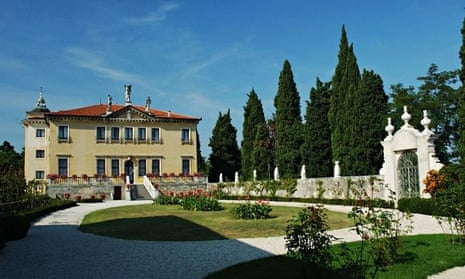A high speed railway linking the ancient Italian cities of Verona and Padua could destroy a 17th century wonder that is home to the works of Andrea Palladio, one of the most influential architects in western history, architectural experts have warned.
The proposed railway will not only damage the cultural landscape created by Palladio in Vicenza but may also destroy a famous Italian villa, the Valmarana ai Nani, named for the 17 stone “nani”, or dwarfs, that surround the home, they said. They said irreplaceable frescoes by Venetian artist Giambattista Tiepolo and his son are also at risk.
Regional trade associations say the rail line would create economic opportunities by connecting Vicenza to the greater European rail network. Conservationists from major Italian and international universities say the project will disturb “vital elements on the cultural continuum of world heritage”.
A draft plan is expected to be passed in a Vicenza city council meeting on Monday and is strongly supported by local politicians and the city’s mayor, Achille Variati.
“You can either be a victim of this project or you can drive it,” Variati told the Corriere della Sera newspaper. He sought to reassure citizens that no harm would come to the site.
The town of Vicenza and the Palladian Villas of the Veneto were designated a world heritage site in 1994, largely because it is seen as the birthplace of Palladian architecture, a style that spread to England, the rest of Europe and the United States. Unesco, which protects such sites, is now getting involved in the row, according to local media reports, and has requested more information about the impact of the project on the Vicenza territory.
Francesca Leder, a professor at the University of Ferrara who is leading the charge against the project, has said it violates the international agreement signed in 1994 and that the public has not had the opportunity to discuss the development.
Leder has petitioned Dario Franceschini, the Italian culture minister, to get involved.
